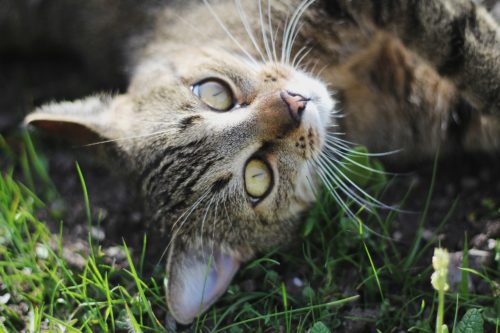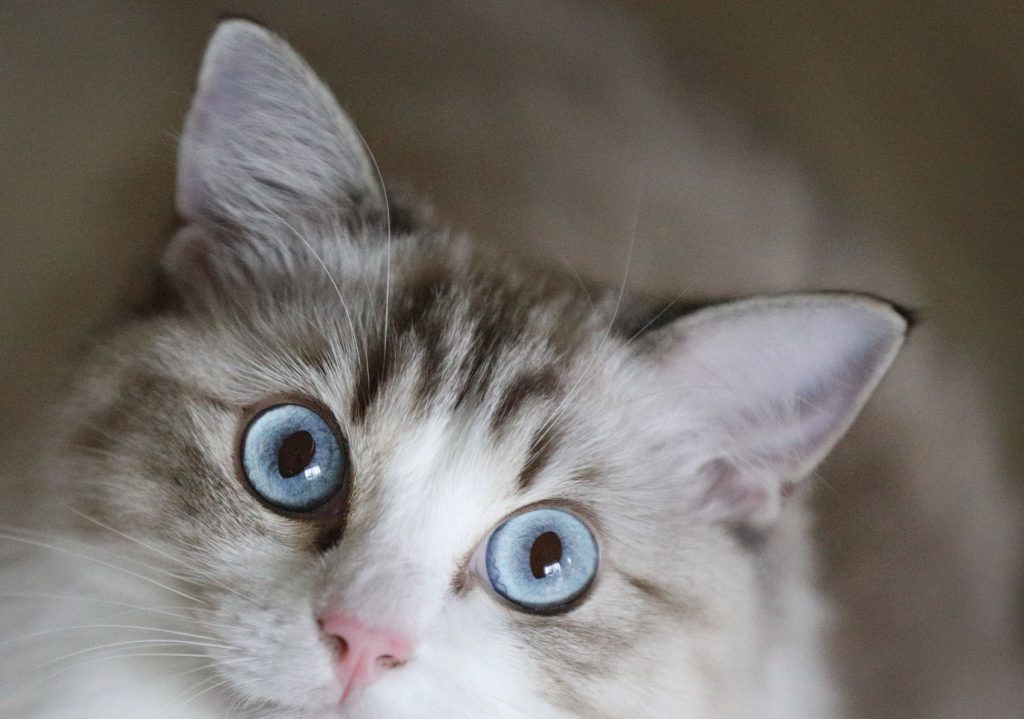Is your cat itching and scratching more frequently than before? If so, be aware: he may have food allergies.
Food allergies account for about 10% of all the allergies seen in cats. Following flea bite allergies and inhalant allergies, food allergies account for nearly 60% of an increase in itching and scratching in cats.
And unlike flea bites, food allergies are not developed overnight, but point to the presence of an allergen—the allergy-causing food—in your cat’s system for a long period of time.
Read on to find out the most common food allergies found in felines, and what you can do if you suspect your cat is afflicted.
Most Common Food Allergies In Cats
Beef, Lamb, and Seafood
Beef, lamb, and seafood such as fish are common proteins that can lead to allergies in cats. Though seemingly impossible to avoid, several cat food manufacturers today use alternative meats, such as venison and duck.

Meat Byproducts
Meat byproducts are the non-rendered clean parts of an animal. This includes organs that humans do not eat, like the skin and other pieces including the tail or hoof. Cat food manufacturers often use meat byproducts, which are cheaper but provide less nutritious value than the actual meat.
Corn
Another low-cost filler in cat foods, cornmeal and corn gluten meal have been known to cause food allergies in cats. Many cats are allergic to all forms of corn. Telltale signs of a food allergy to corn include itchy, dry skin.
Additionally, some veterinarians believe fillers such as these to be linked to diabetes in cats.
Wheat Gluten
Like corn products, wheat gluten is also used as a cat food filler. Wheat gluten is a top allergen for felines, so it’s best to avoid it.
Eggs
Sometimes, cat manufacturers will add eggs to cat food—specifically canned foods—for a boost in protein. Unfortunately, some cats will develop allergies to the egg yolks or whites.
Soy Products
Like eggs, cat food manufacturers add soy for more protein. A plant-based protein, soy is not necessary for a cat’s health.
Dairy
Many cats develop allergies to the lactose in cow’s milk—that is, the natural sugar in the milk product. Some pet foods even add dairy products, such as milk powder or cheese, for calcium. Even quality brands are known to add milk, so be sure to check the label for dairy.

Artificial Coloring
Organic, all-natural foods have become something of a craze for humans in the past several years. But did you know that cat foods can also contain harmful artificial ingredients, too?
Many inexpensive cat foods contain artificial food coloring, which serves no purpose other than to visually attract their human owners. Unfortunately, these dyes can cause food allergies in cats.
Preservatives
Human diets today are cautious of the harmful effects of preservatives, which have been linked to asthma-related sensitivity and allergies.
In the same way, cats can also develop food allergies to preservatives. Preservatives are used by pet food companies to lengthen the shelf life of their foods, but with harmful side effects. Some experts believe that artificial preservatives found in cat foods such as BHA and BHT may be carcinogens—cancer-causing substances.
Symptoms of Food Allergies in Cats
Be on the lookout for the following symptoms, which often point to food allergies in cats:
- Sneezing, coughing, and wheezing
- Increased scratching
- Ear infections, or itchy ears
- Itchy skin
- Itchy, runny eyes
- Itchy back or base of tail—most common in cats with flea allergies
- Vomiting
- Diarrhea
- Snoring from an inflamed throat
- Chewing or swollen paws
If you notice any combination of these symptoms, it’s important to consult your veterinarian as soon as possible. Allergies, though irritating at first, have the potential to become life-threatening.
Your vet will work with you to identify and eliminate the offending allergens. It’s important not to eliminate foods without expert help, as doing so could throw your cat’s diet off balance.
How to Care For a Cat With Allergies
Caring for a cat with food allergies may seem overwhelming based on the full list of food allergens alone. The good news? Cat food manufacturers are becoming increasingly aware of this problem as more and more felines are diagnosed.
Several food options exist today with alternative proteins. By working with a vet to identify and eliminate the allergens in your cat’s diet, you will help your cat live a happy, healthy life.




